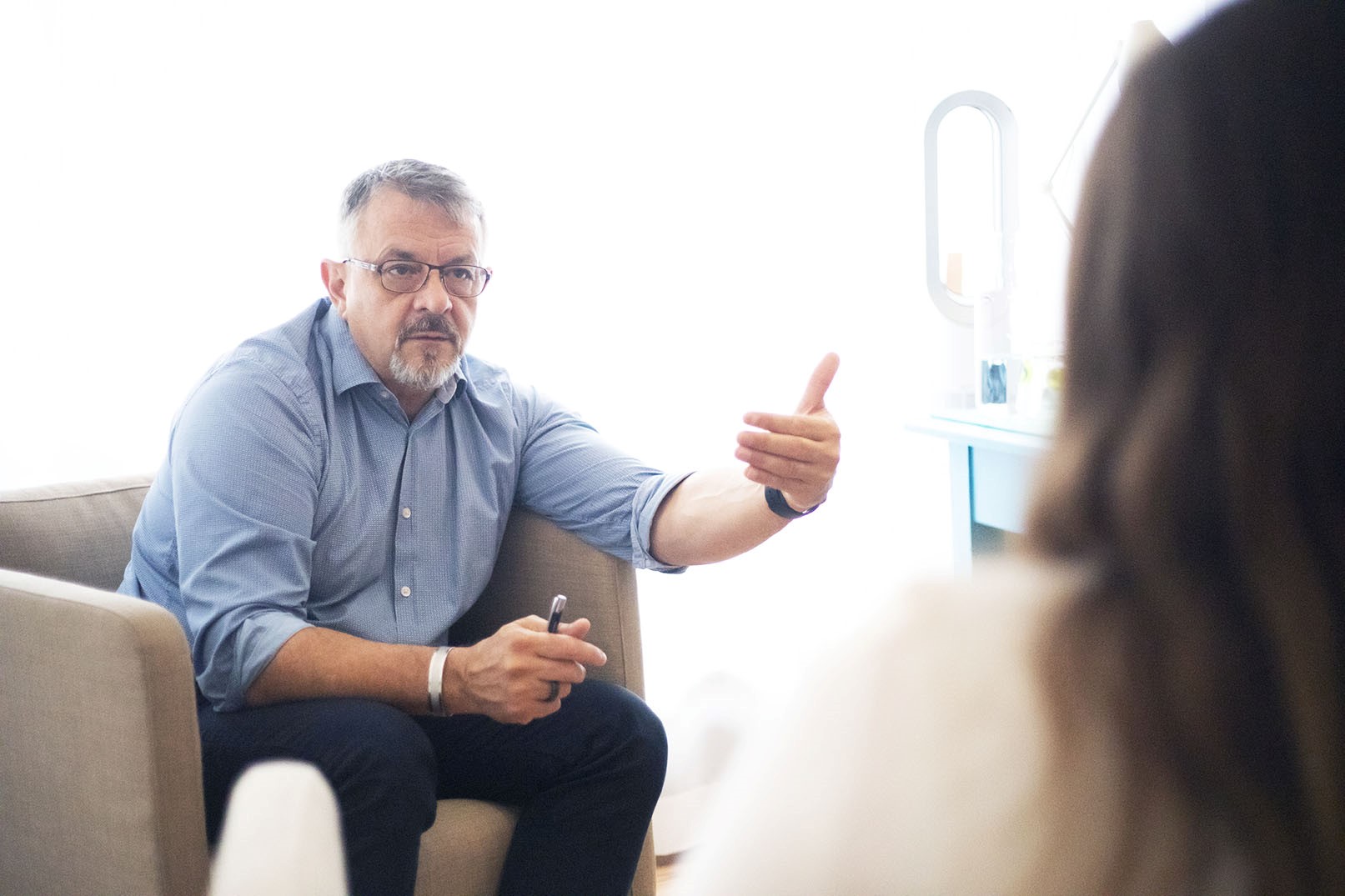Our consultants have a double life: Jean-François LARHER
Share a piece of our consultants' lives by discovering their passions! This month, let's discover the second life of Jean-François LARHER who practices hypnotherapy and life coaching for short therapies.

What is your passion/your double life?
I practice hypnotherapy and life coaching for short therapies.
When and how did you start?
Ever since I was a kid, I've been curious about how people react to events. I wondered why people facing a common situation reacted in sometimes completely opposite ways.
About ten years ago, I looked for tools to make sense of this. I then discovered NLP (Neuro-Linguistic Programming). At the time, this technique had piqued my curiosity through its pragmatic approach, and I felt that it could provide me with solutions to this questioning. I therefore decided to train in NLP.
This training was a first revelation. It offered me simple and powerful tools for understanding themes relating to emotions, values, beliefs, individual needs, relationships with others, learning and many other things. So, I decided to follow the full course.
During this period, I also discovered hypnosis, and this was the second revelation!
The mastery of hypnosis in its therapeutic dimension gives access to solutions that are difficult or even impossible to achieve by simple willpower on themes as diverse as stress management, sleep, pain, appeasement of traumatic situations, but also on more subtle dimensions related to internal resources such as the regulation of the immune system (for allergies for example), the hormonal system, learning and memorization for example. It is a relatively simple technique to implement, but more complex to practice in its therapeutic use.
I therefore trained for three years in Ericksonian hypnosis, instant hypnosis and conversational hypnosis, and then continued to acquire mastery of techniques such as Process Communication (profiling technique), Synergology (reading of non-verbal language, I met Sandrine Gastine, our Business Manager d²X Switzerland at one of the trainings 😉), but also courses in neuroscience and psychopathology.
I then spent several years practicing coaching in my spare time to gain skills and finally took the plunge by setting up as a part-time freelancer... at the end of 2019... You will notice the excellent timing!
What do you like about this activity?
In my previous career, I was an aid worker and I travelled around the world in conflicts and disasters. I loved this job, which I had to stop because of family events. I am someone who needs to make sense of things. I find this meaning in the need to nourish my humanist values.
This activity allows me to find a meaning, to control the direction I give to my life. I know where the energy I put into my work goes and I can be fully myself.
When a client comes to see me one last time for the end-of-counseling assessment and has a smile on his face because he feels better in his life, I know that I have made the right choices.
How does your passion fit into your daily life?
I practice this activity now part-time as a freelancer in addition to my job as a consultant. I share this passion with my wife who also practices hypnosis and with whom I have set up a therapeutic centre in Lausanne in which other therapists have also joined us.
My days are mainly focused on consultations with my clients, intervision sessions with my colleagues, conferences as well as the facilitation of workshops and discussion groups and the development of my therapeutic intervention protocols (and accounting, administration, and communication).
When I go home in the evening, I have a clear head and fully available to take care of my family.
Have you acquired skills that you use in your professional life?
Definitely. They allow me to better manage stressful situations daily, but also to improve the fluidity of exchanges in professional relationships.
Every consultant knows that a project is only exceptionally in the world of the Care Bears! When we work in an organization, we sometimes must deal with structural problems, internal conflicts, understaffing, restructuring, "difficult" personalities, or colleagues who have dropped out.
You can have the best-established processes, but a project is first and foremost a human adventure and if there is no will or dynamic to make it succeed, it can become very complicated.
I am convinced that it is essential to build and maintain a quality human link, especially with people who have difficulties.
These tools enable me to understand the systemic issues in place in the company and to position myself in accordance with them. They help me to adjust my communication style according to my interlocutors, to better manage opponents to the project or to understand what leads a person to malfunction to help him or her leave a defensive communication towards a more constructive position. In this way, I was able to bring people who were initially in complete opposition to become active players or even promoters of the project.
In addition, and in a more informal way, I have been able to support junior consultant colleagues when they were having relational difficulties in their mandates or with their hierarchy. Of course, this requires a rather particular vision of the world and of the relationship with others, but with the right techniques and training, this vision becomes second nature.
Finally, in my private life, my wife having followed a similar curriculum to mine, we now have the same codes to communicate... household scenes are simply past tense in our house 😊.
Feel free to contact me if you want to know more about these activities. You can also check out my website: https://larher.ch
Thank you Jean-François for answering our questions!
